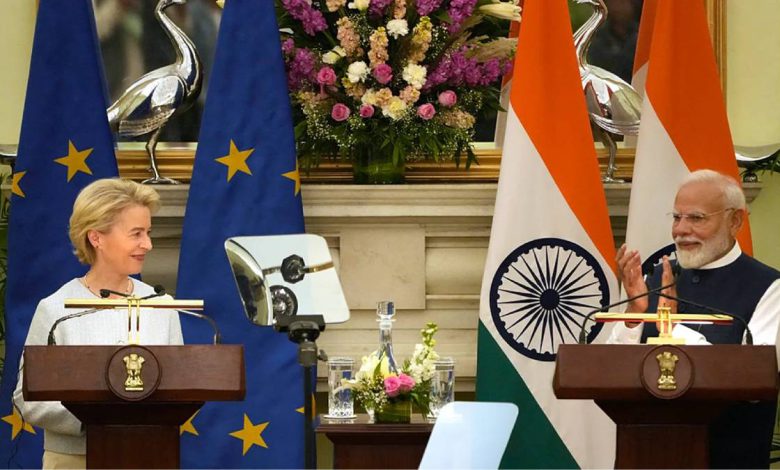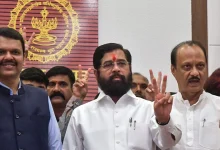EU Sets Sights on Stronger India Ties: New Agenda Targets FTA by 2025, Tech Collaboration, and Security Boost

The European Union outlined a comprehensive strategic plan on Wednesday to strengthen its bilateral relationship with India. “Europe is already India’s biggest trading partner and we are committed to finalising our Free Trade Agreement by the end of the year. Europe is open for business. And we are ready to invest in our shared future with India,” declared European Commission President Ursula von der Leyen in a communique from Brussels.
She extended birthday wishes to Prime Minister Narendra Modi on turning 75 on September 17. Modi’s response on X stated: “India is ready to take the India-EU relationship to the next level. It is our shared commitment, shared goal, and shared responsibility. We remain committed to an early and peaceful resolution of the Ukraine conflict.”
The European Commission, serving as the EU’s executive arm, along with the High Representative overseeing foreign and security policy, approved the Joint Communication intended for the European Parliament.
“Now is the time to focus on reliable partners and double down on partnerships rooted in shared interests and guided by common values. With our new EU–India strategy, we are taking our relationship to the next level,” von der Leyen added in her Political Guidelines for 2024-2029, where she introduced the agenda.
A release explained that the Joint Communication highlights shared interests and complementary assets, enhancing current partnerships while exploring new avenues for collaboration. It emphasized that amid changing geopolitical landscapes, deeper EU-India ties are crucial, especially for supply chain diversification in an unpredictable world.
The document acknowledged India’s expanding global role: “Beyond the bilateral dimension, the new strategic agenda highlights EU-India joint engagement on global issues and with third partners.”
Priorities include progressing the proposed EU-India Security and Defence Partnership, with joint efforts in maritime security, cyber defence, and counterterrorism. “Closer cooperation on the Indo-Pacific, addressing hybrid threats, space security, and intensifying engagement on Russia’s war against Ukraine, shadow fleets, and sanctions are other areas of focus,” it noted.
Five Key Pillars of the EU-India Strategic Agenda
The document structures the agenda around five core pillars of cooperation.
- Prosperity and Sustainability: This focuses on enhancing trade and investment, with a goal to conclude the Free Trade Agreement (FTA) by the end of 2025.
- Tech and Innovation: It calls for partnerships in critical emerging technologies like AI, semiconductors, high-performance computing, and space tech.
- Security: The aim is to deepen regional security ties and promote defence industrial cooperation to improve production, innovation, and secure supply chains.
- Connectivity: Plans include shaping global governance through joint multilateral efforts on UN reforms, WTO modernisation, climate action, human rights, and security.
- Enabling Cooperation: To support cross-pillar initiatives, it proposes expanding skills mobility in areas like the digital sector; fostering mutual understanding via educational exchanges, cultural diplomacy, and academic ties; and engaging business sectors through EU-India business forums, among other measures.




